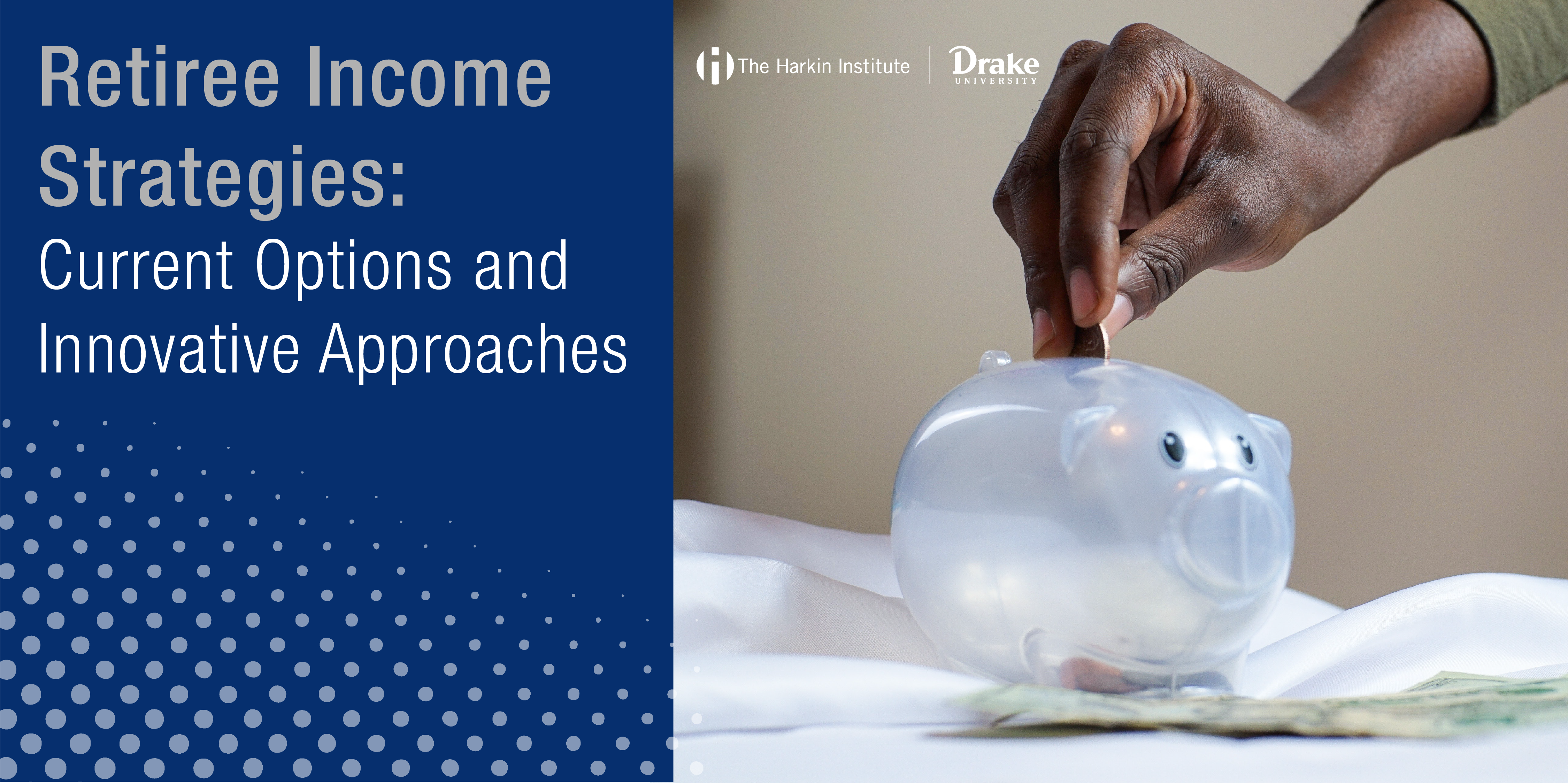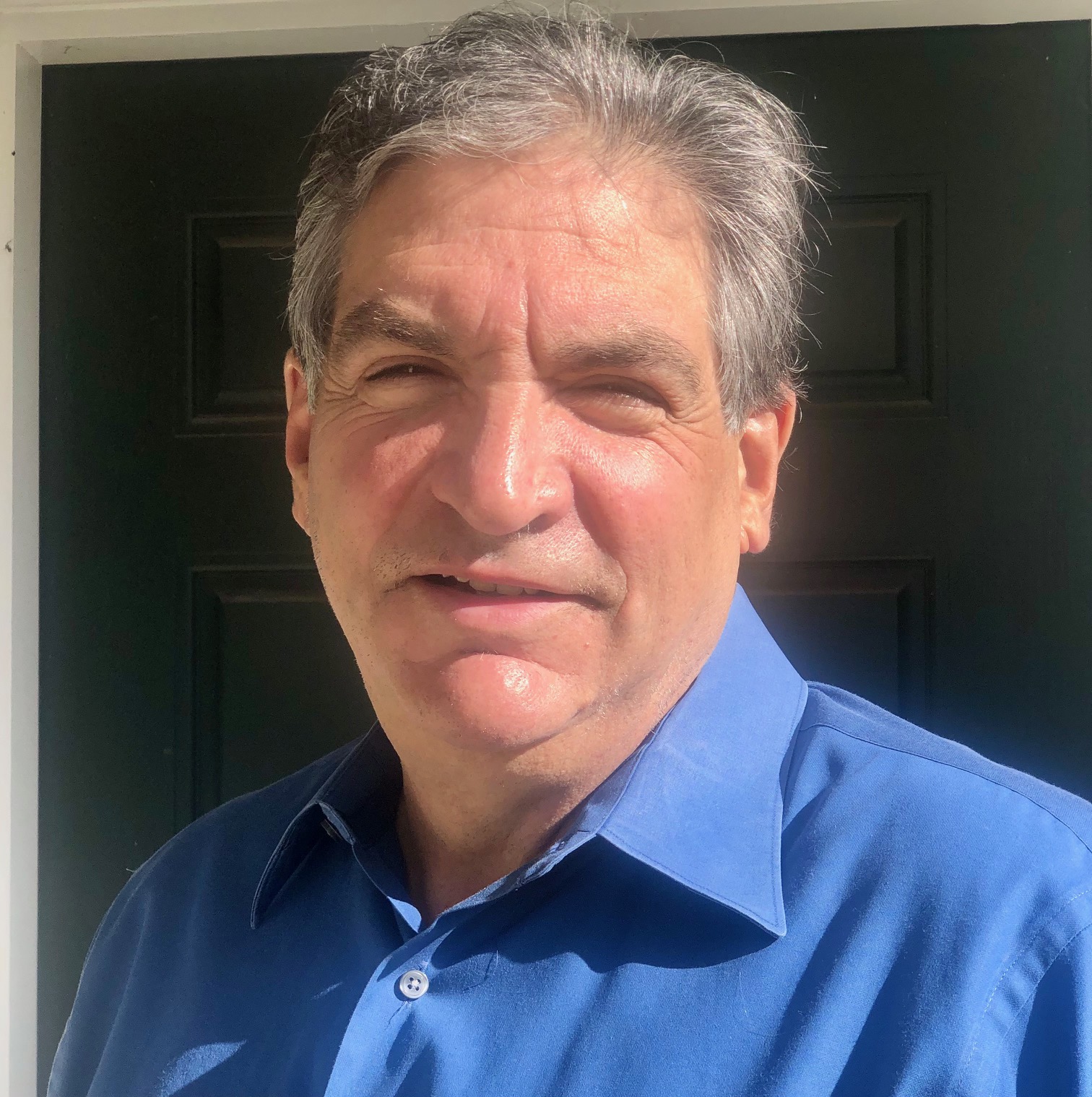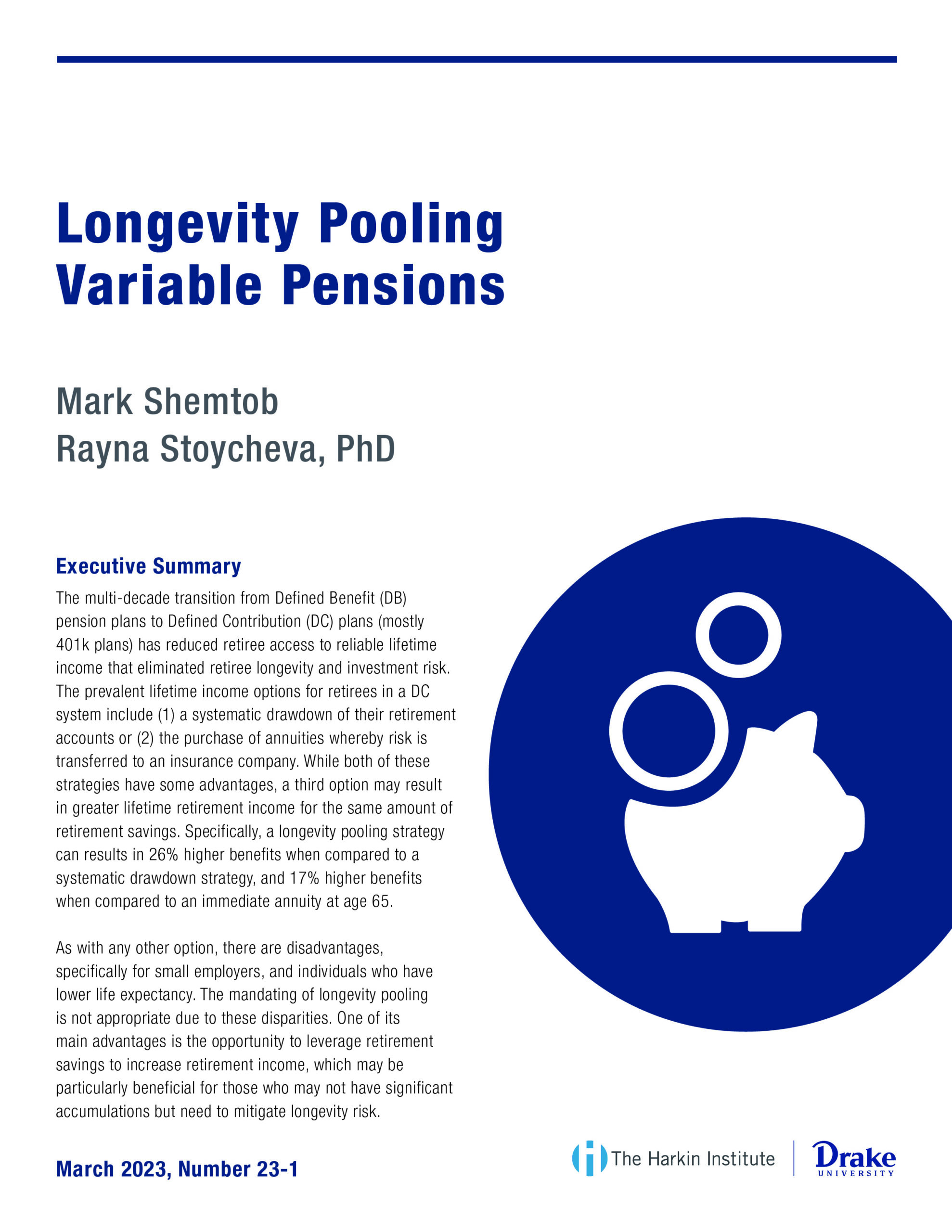
Event Details
What: Retiree Income Strategies: Current Options and Innovative Approaches
When: Thursday, April 20, 2023 at 1:00 p.m. CT
Where: Webinar
Event Summary
Lifetime income strategies refer to the decisions we make about how to manage accumulated retirement assets in the defined-contribution system, where options such as annuities are not a default. Retirees must manage several risks when making these decisions, such as investment risk, longevity risk (the risk that they will outlive their assets), and even the need for long-term care. Good financial planning advice, which may not be available for everyone, is essential when making these decisions. This virtual webinar will discuss how to create a balanced lifetime income strategy, as well as currently available strategies and proposals such as longevity pooling.
Meet Our Panelists:
- David John, Senior Fellow at Brookings and AARP
- Mark Shemtob, Fellow of the Society of Actuaries and member of the American Academy of Actuaries
- Stephen A. Eadie, Chair of the Ideal Canadian Pension Plan Management Board
- Michelle Richter-Gordon, Executive Director of the Institutional Retirement Income Council and co-founder of the Annuity Research & Consulting, LLC

Stephen A. Eadie, FSA, FCIA
Chair, Ideal Canadian Pension Plan Management Board
Stephen A. Eadie is Chair of the Ideal Canadian Pension Plan Management Board. During his working career, he was a founding partner of Robertson, Eadie & Associates (RE&A), and most recently acted as CEO/UDP of ICPP Funds Ltd., an investment management firm. He has worked in the Canadian pension industry for more than 40 years.During his career, he leveraged his actuarial training to provide pension investment and consulting services to a wide range of clients. His experience and actuarial training provided him the opportunity to collaborate in creating the innovative pension design for the Canadian marketplace that is offered through the Ideal Canadian Pension Plan (ICPP). The ICPP is a multiple employer, collective defined contribution retirement system that is fully sponsored, governed and administered by the ICPP Management Board, a committee of pension experts.
Stephen has written many articles to support the continued development of the Canadian pension industry. His recent articles include, “An Improved Application of the Variable Annuity”, “A New Paradigm for the Wind-Up of Pension Plans in Ontario” and “Finding the Optimal Pension Plan for Canadians”, which was co-authored with former CIA, SOA and IAA President Robert L. Brown, PhD FCIA FSA ACAS.
Stephen is a fellow of the Society of Actuaries and the Canadian Institute of Actuaries. He graduated from the University of Western Ontario receiving the London Life Gold Medal for highest academic achievement in his class.

Michelle Richter-Gordon, AIF ®
Executive Director, Institutional Retirement Income Council & Co-Founder, Annuity Research & Consulting, LLC
Michelle Richter-Gordon, AIF ® serves as executive director, Institutional Retirement Income Council, and co-founder, Annuity Research & Consulting, LLC. (ARC), an independent Registered Investment Adviser providing Annuity FiduciaryTM services in the ERISA domain. Mrs. Richter-Gordon has 25 years of experience inventing, deploying, advocating for, and growing innovative products and programs that integrate insurance into holistic wealth management.Mrs. Richter-Gordon earned a bachelor’s degree in Economics from Wesleyan University, and an MBA in both Management and Finance from Columbia University’s Graduate School of Business. Michelle is both an investment adviser and an insurance advisor, and she is neither an agent nor a currently registered representative. Follow Michelle’s opinionated, direct commentaries on linkedin.

David C. John
Senior Fellow at Brookings and AARP
David C. John is a Senior Strategic Policy Advisor at the AARP Public Policy Institute focusing on pension and retirement savings issues. PPI is AARP’s internal think tank. John also serves as the Deputy Director of the Retirement Security Project at the Brookings Institution. RSP focuses on improving retirement savings in the United States, especially among moderate and low income workers.John has written and lectured extensively on reforming the nation’s retirement programs. He is a co-author of several papers on innovative ways to convert retirement savings into income. He is also the co-creator with J. Mark Iwry of the Automatic IRA, a small business retirement savings program for firms that do not sponsor any other form of retirement savings or pension plan. Automatic IRA programs are active in Oregon, Illinois, and California, and are in the process of implementation in a number of other states. In addition, John has written on a wide variety of other related topics including automatic enrollment for emergency savings, improving the Saver’s Credit, dashboards, and a variety of ways to convert savings into retirement income. He is also the co-editor of the new book, Wealth After Work: Innovative Reforms to Expand Retirement Security.

Mark Shemtob, FSA, CFP®
Fellow, Society of Actuaries & Member, American Academy of Actuaries
Mark is a Fellow of the Society of Actuaries, and a member of the American Academy of Actuaries. He is an active volunteer within the actuarial profession serving on several committees focused on the challenge to improve retirement programs. Mark is also a Certified Financial Planner specializing in individual retirement planning. He currently serves on the Board of Directors of the Institutional Retirement Income Council. Mark’s primary focus is in addressing the challenges posed by the transition from defined benefit plans to defined contribution plans and the impact on retirement income sustainability. He has written and spoken extensively on this topic. Mark can be reached at markeaasa@yahoo.com
New Brief! Longevity Pooling Variable Pensions
The multi-decade transition from Defined Benefit (DB) pension plans to Defined Contribution (DC) plans (mostly 401k plans) has reduced retiree access to reliable lifetime income that eliminated retiree longevity and investment risk. The prevalent lifetime income options for retirees in a DC system include (1) a systematic drawdown of their retirement accounts or (2) the purchase of annuities whereby risk is transferred to an insurance company. While both of these strategies have some advantages, a third option may result in greater lifetime retirement income for the same amount of retirement savings. Specifically, a longevity pooling strategy can results in 26% higher benefits when compared to a systematic drawdown strategy, and 17% higher benefits when compared to an immediate annuity at age 65.
As with any other option, there are disadvantages, specifically for small employers, and individuals who have lower life expectancy. The mandating of longevity pooling is not appropriate due to these disparities. One of its main advantages is the opportunity to leverage retirement savings to increase retirement income, which may be particularly beneficial for those who may not have significant accumulations but need to mitigate longevity risk.

